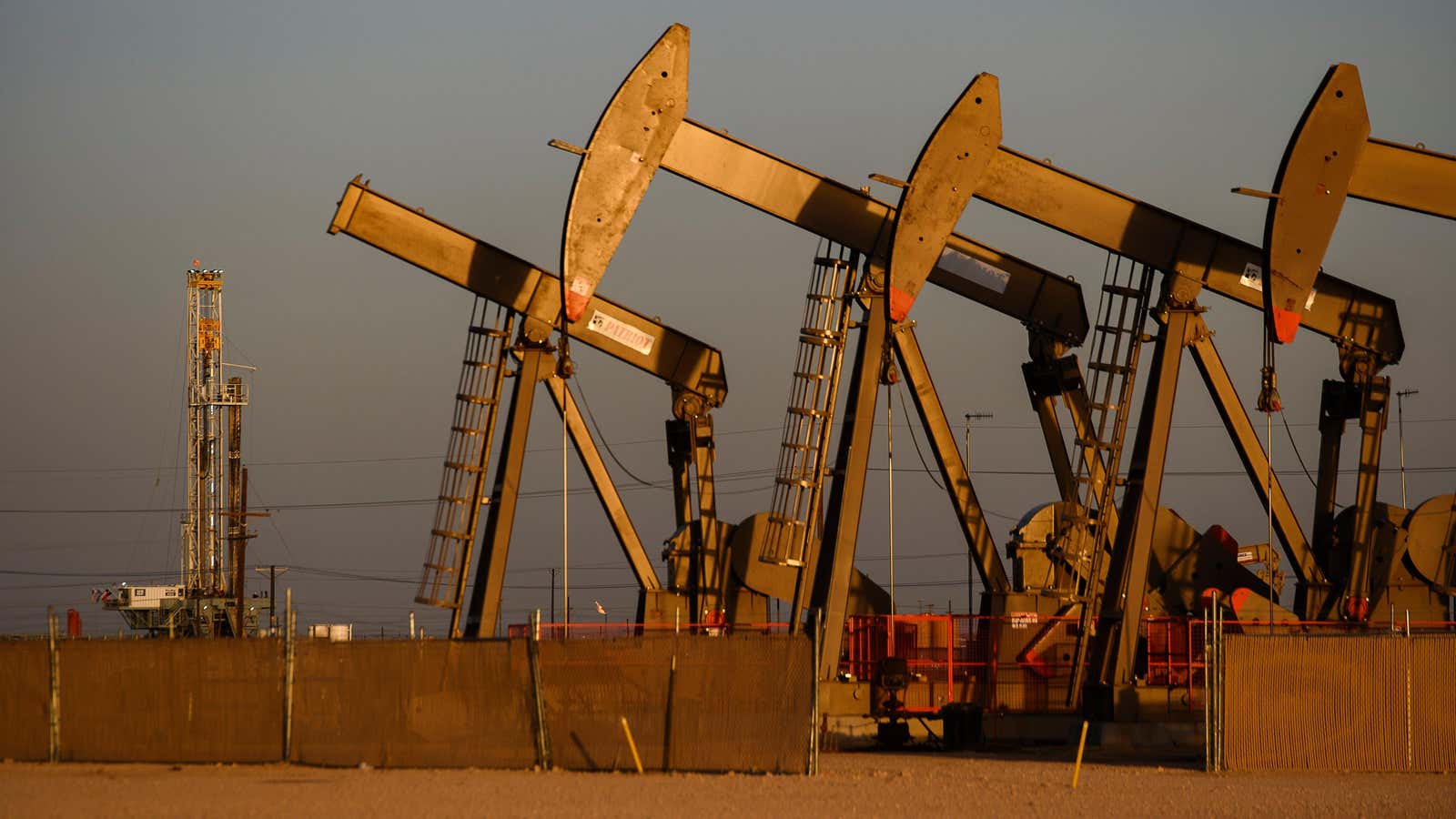For the US, it isn’t a good look in the lead-up to this week’s United Nations conference on climate change (COP28). The country will pull record quantities of oil and gas out of the ground in 2023, which is on track to be the hottest year in history, the Guardian reports.
The US is expected to extract an all-time high of 12.9 million barrels of crude oil this year, more than twice its total a decade ago. American natural gas production will also hit a new record in 2023, the Guardian notes, while exports of liquefied natural gas (LNG) will double through 2027.
It gets worse. For oil and gas exploration and production, Washington expects this frenetic pace to continue until 2050. That’s the same date scientists have pinpointed for the elimination of planet-warming emissions if humans want to avoid breaking the climate. Between now and 2050, one third of the world’s planned oil and gas expansion will be in the US.
All of this contradicts US president Joe Biden’s rhetoric about the dangerous and expensive impacts of climate change, as well as his administration’s moves to encourage clean energy investment, boost electric vehicle sales, and cut carbon emissions.
Biden is skipping COP28, which takes place in Dubai. There, US climate envoy John Kerry and other officials pushing to limit global temperature rise to 1.5°C must get buy-in from almost 200 nations. Among them: oil and gas powerhouses Russia, Saudi Arabia, and the host of COP28, the United Arab Emirates (UAE).
Oil-rich nations behaving badly
When it comes to fossil fuels and climate change, the US isn’t the only nation saying one thing and doing another.
The UAE planned to use COP28 to strike oil and gas deals, leaked documents show, though both the conference team and state-owned Abu Dhabi National Oil Co. (ADNOC) have denied it.
And despite making noises about sticking to the Paris agreement’s climate goals, Saudi Arabia is pushing an investment plan to boost demand for its oil and gas in African and other developing countries. The Saudi government spins its Oil Sustainability Program (OSP) as “removing barriers to energy access in developing markets, accelerating technology advancements, and increasing sustainability.”
But predictably, the program’s efforts revolve around fossil fuels, whether it’s supplying natural gas for cooking or ramping up supersonic aviation. That form of transport uses three times more fuel than conventional air travel, the OSP admits.
Then there’s China, which uses its dubious status as a developing country to keep binging on fossil fuels. Although China is installing as many solar panels and wind turbines as the rest of the world, it’s still the largest producer and importer of coal, the use of which government officials have defended as vital to energy security.
Right now, China has 306 new coal-fired plants under construction, announced or planned. Those additions could boost the country’s coal power capacity by 22% to 33% from 2022 levels, data provider Global Energy Monitor estimates.
